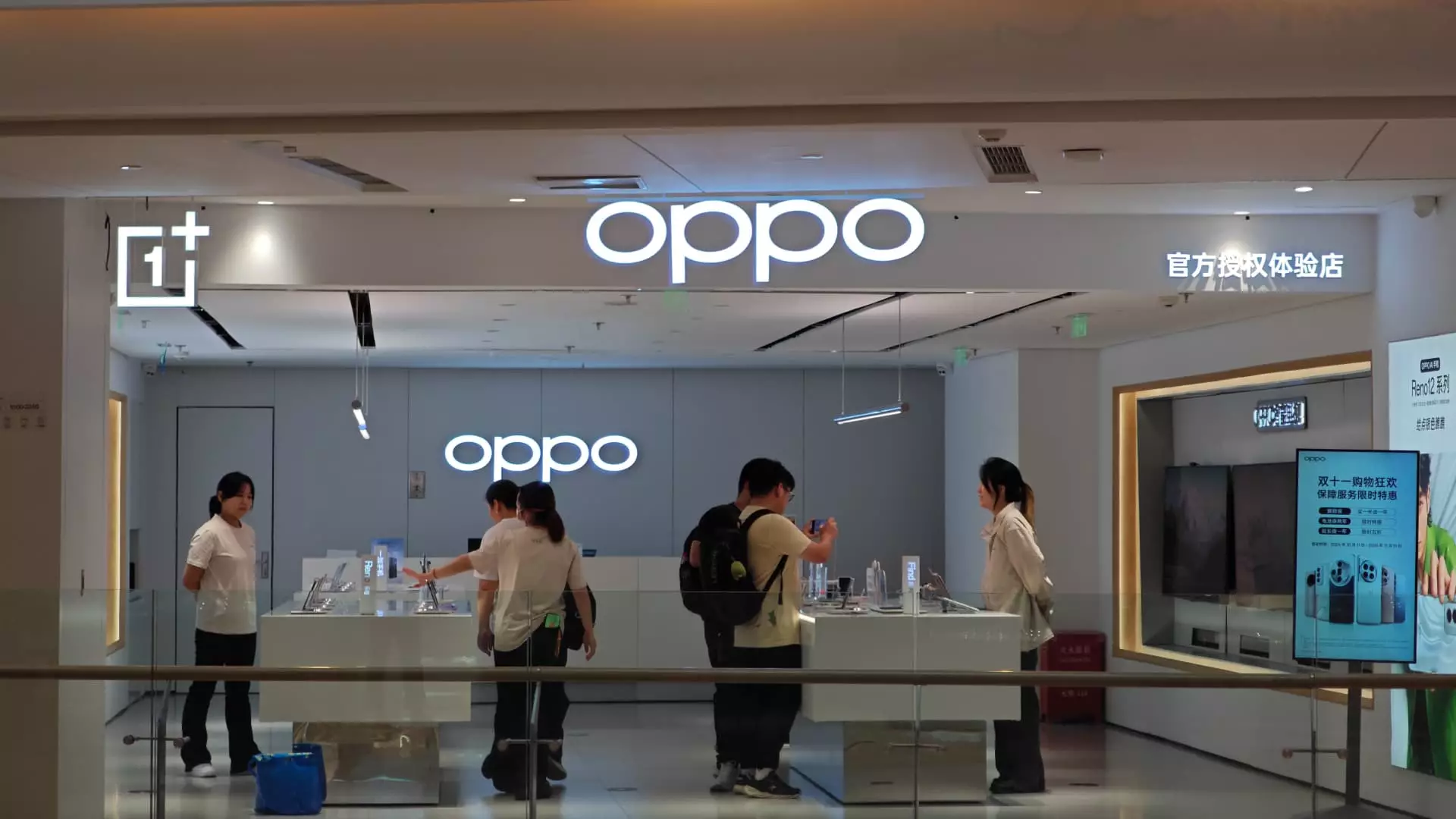As artificial intelligence (AI) continues to redefine the technology landscape, Oppo—a prominent Chinese smartphone manufacturer—is positioning itself at the forefront of this evolution. With the imminent release of its flagship phone in international markets, Oppo is engaging in collaborative dialogues with tech giants like Google and Microsoft. This strategic initiative aims to explore the extensive applications of AI, particularly in enhancing user experience and optimizing production processes. Such partnerships are a testament to the company’s commitment to harnessing AI’s potential in a saturated market.
The integration of AI into smartphone technology is not just a trend; it signifies a fundamental shift in how consumer electronics are designed and utilized. In recent years, the advent of generative AI—capable of producing human-like responses—has spurred a competitive frenzy among tech firms from Apple to globally recognized brands like Honeywell. At the heart of this movement is the ability of AI to address consumer pain points through smart, intuitive solutions. Billy Zhang, Oppo’s president for overseas markets, highlights the company’s focus on leveraging consumer insights as a springboard for AI innovation. “We know consumers’ needs, and we will use AI to satisfy them,” he noted, underscoring the importance of understanding market demands.
While Oppo is aggressively pursuing expansion in Europe and Southeast Asia—relying heavily on these markets for revenue—it’s notable that immediate plans for entry into the U.S. market remain absent. This cautious approach stems, in part, from the complexities surrounding international regulations, particularly concerning high-end chip exports from the U.S. to China. Despite these hurdles, Oppo’s strategy is clear: focus on leveraging AI capabilities to enhance product offerings while fortifying its presence in markets where it holds a competitive advantage. Ranked fourth globally in smartphone shipments, Oppo’s strategic partnerships and technological advancements help secure its position within the competitive landscape dominated by industry behemoths like Samsung and Apple.
Oppo’s forthcoming flagship smartphone promises exciting AI-driven functionalities, including writing and recording summary tools derived from Google’s Gemini AI and content generation features linked to Microsoft’s technology. While the specifics of existing models’ integration with AI tools remain ambiguous, Oppo’s commitment to generative AI is evident. The company intends to integrate these features across 50 million devices this year, signaling a robust push towards AI compatibility in everyday consumer tech.
Zhang emphasizes the transformative potential of AI, asserting, “AI is the most important area for tech in the future.” This sentiment resonates widely in the industry, as analysts project explosive growth in the generative AI smartphone segment, estimating shipments will reach 732 million devices by 2028. Such forecasts underscore the urgent need for companies like Oppo to innovate continuously in order to meet consumer expectations in an ever-evolving digital landscape.
Beyond consumer applications, Oppo is also investing in the automation of its factories to enhance production efficiencies. By replacing approximately 8% of the workforce with machines, the company is not only lowering production costs but also reallocating human resources to manage more intricate production tasks. This shift demonstrates an overall trend in the tech industry, where firms increasingly turn to automation to optimize production lines.
Technological advancements have helped Oppo reduce its manufacturing costs by nearly 40% over the past three years, while also shortening production time from 16 days to just six. Such improvements enable the company to adapt swiftly to market demands and diminish the risks associated with unsold inventory. As Danny Du, Oppo’s director of manufacturing management, notes, “since our manufacturing process is largely digitalized and standardized, growing and expanding to global markets is much easier.”
As Oppo continues to navigate the complexities of the global smartphone market, its dedication to artificial intelligence is shaping its strategic direction. By forging partnerships with industry leaders like Google and Microsoft and investing heavily in both consumer and manufacturing technologies, Oppo is poised for a significant impact in the tech landscape. The ongoing focus on AI not only reaffirms its commitment to innovation but also highlights the critical need for companies to adapt in a digitally driven future. Ultimately, Oppo’s proactive approach could serve as a model for other tech firms aiming to thrive in this fast-evolving environment.

